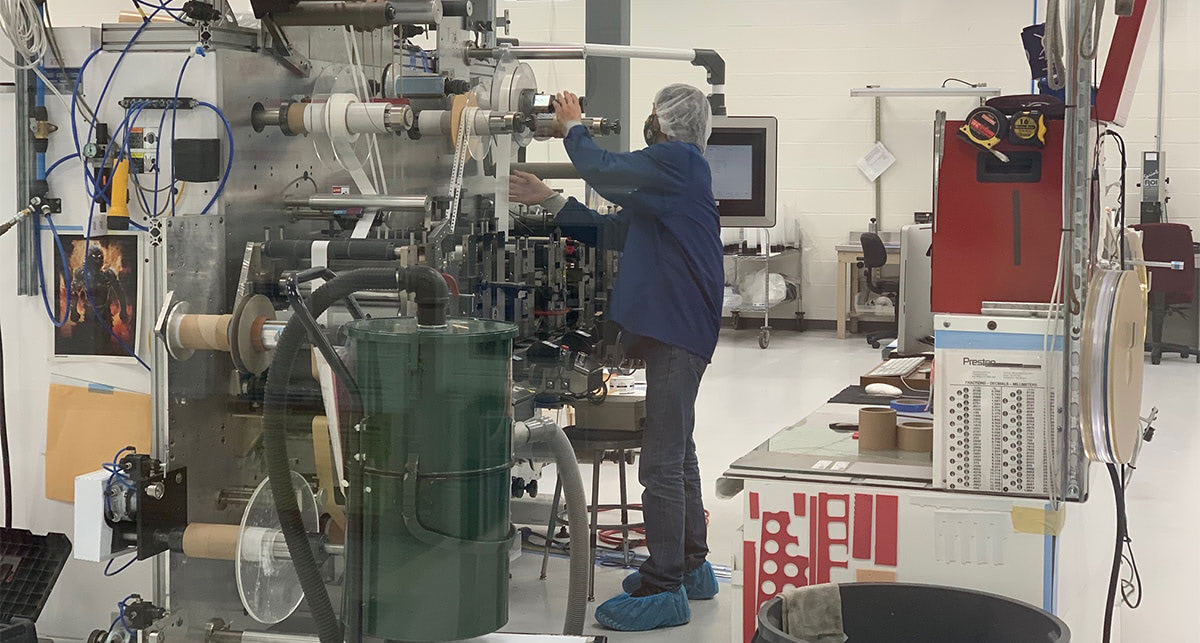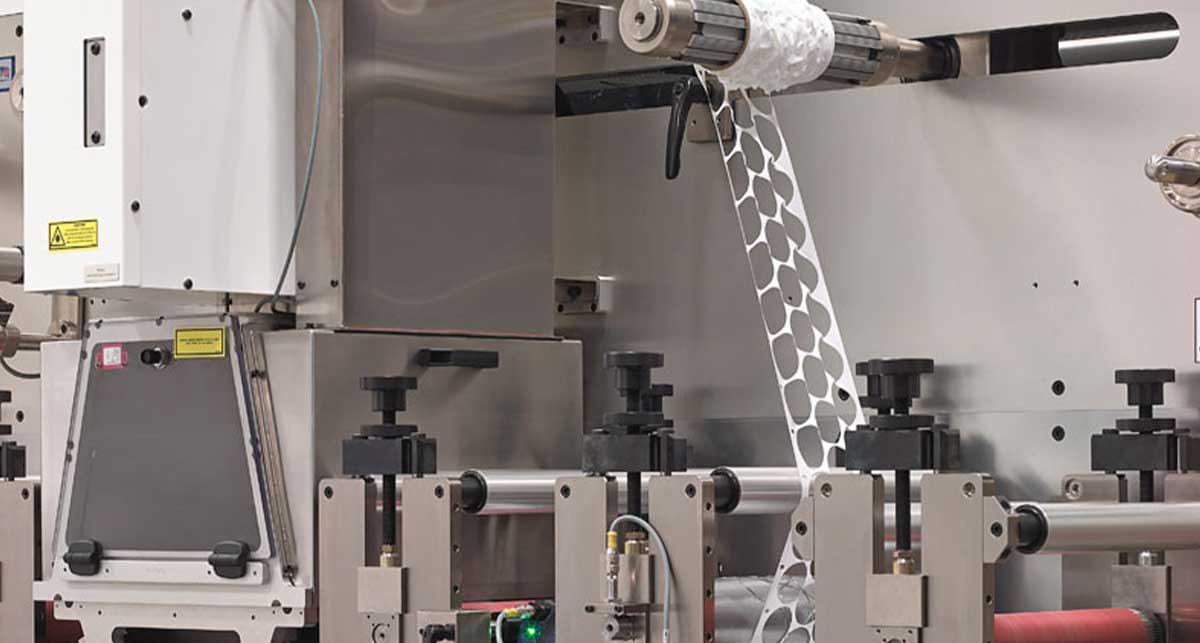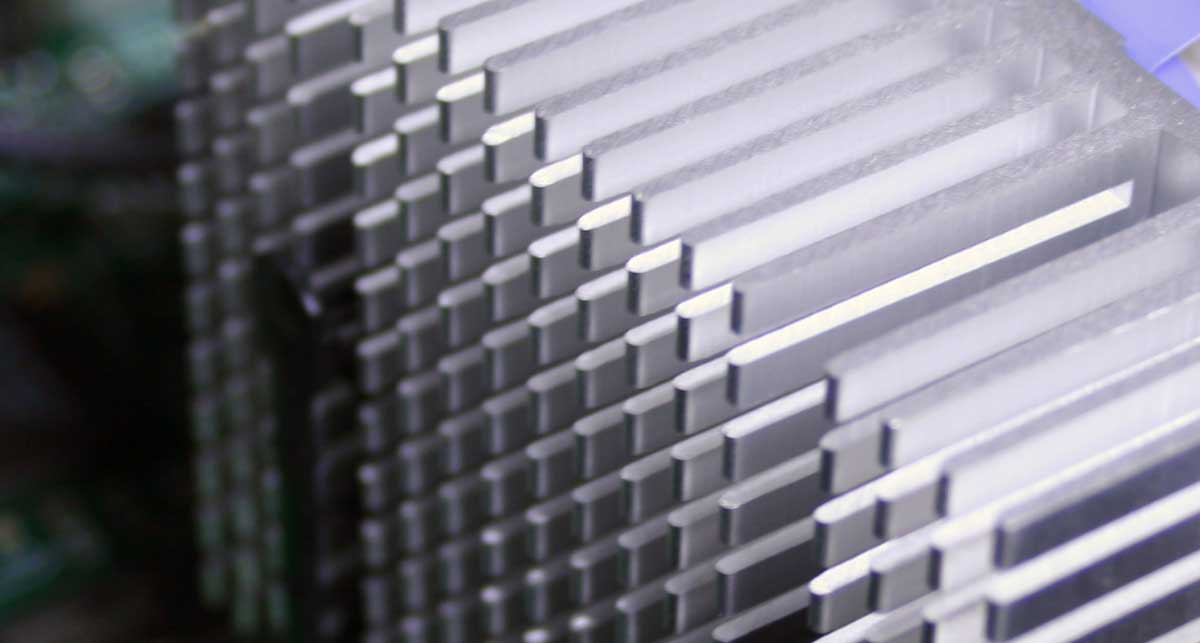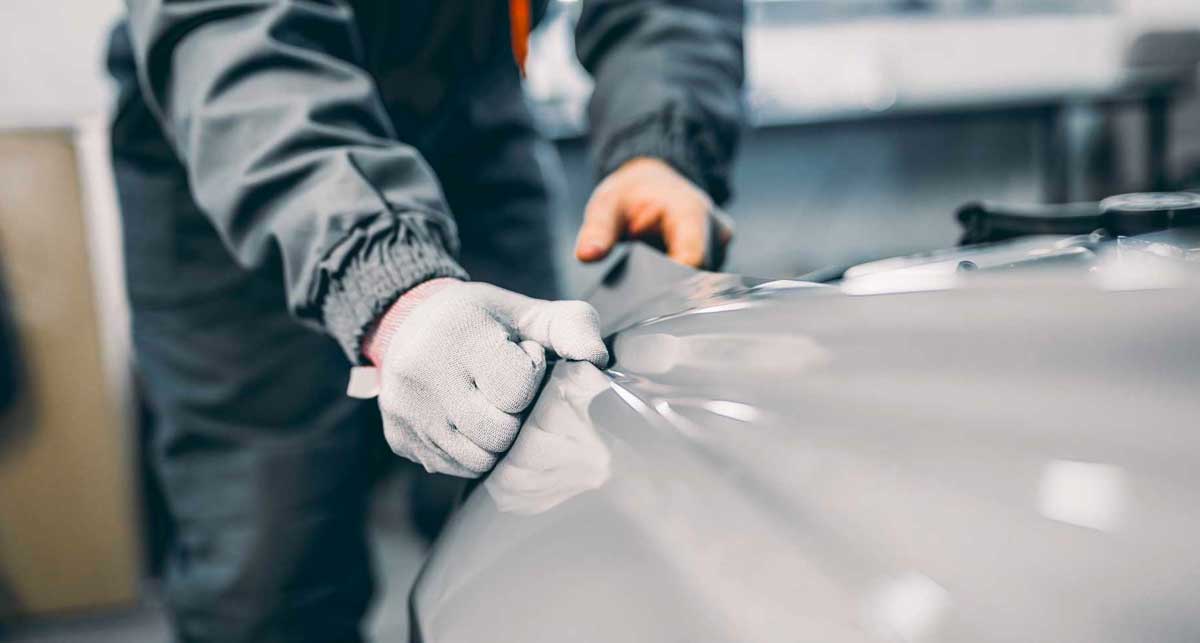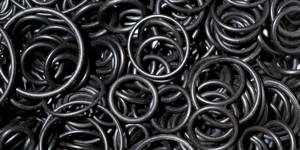We’ve all been there: you’re having a wild Friday night searching gasket materials online, when all of a sudden, you encounter nitrile or Buna-N rubber. It may sound like the name of a Pokémon, but what actually is a nitrile gasket?
Finding the right material is no easy task, but as an adhesive converter with over 39 years of experience, Strouse’s experts specialize in helping our clients source the best material for their custom gasketing applications.
Once you understand the advantages of using nitrile rubber gaskets, you’ll be prepared to make an informed decision about whether they suit your product design.
THE DIFFERENCE BETWEEN NITRILE, NBR, AND BUNA N RUBBER
After hearing a smorgasbord of terms, one might wonder, “Okay, so what’s the difference between nitrile, NBR, and Buna-N rubber?” The answer is more straightforward than you might think—
They’re all the same—or rather, essentially all the same. NBR and Buna-N rubber refer to the same material, nitrile rubber; only NBR is an abbreviation (Nitrile Butadiene Rubber), and Buna-N is a well-known brand name of said material.
What are the Benefits of Using Nitrile Gaskets?
With hundreds of synthetic rubber gasket materials to choose from, it’s only natural that you wonder, what sets nitrile apart? These are its distinguishing factors:
- Acid Resistance
- Oil and Gasoline Resistance
- Compression Resistance
- Low-temperature Functionality
Nitrile gaskets can be used in a wide range of applications, such as automotive or industrial machinery, depending on the specific needs of your project. Let’s explore these benefits and uses before discussing when NOT to use them.
1. ACID RESISTANCE
One of the most compelling reasons to use nitrile gaskets is their resistance to several different substances, including acids. Nitrile gaskets and seals offer excellent resistance against alkalis and acids, making them useful in industries and applications where they’re often present.
2. OIL AND GASOLINE RESISTANCE
Along with acid, nitrile rubber material is resistant to oil, gasoline, and lubricants, making NBR gaskets highly valuable in automotive and aerospace applications where they act as fuel-resistant seals. Manufacturers often request buna n rubber gaskets to seal petroleum-based oils and hydraulic fluids.
3. COMPRESSION RESISTANCE
Nitrile gaskets resist compression, meaning they will revert to their original shape after pressure. The compression resistance is ideal for products that are in constant use or intended to be permanent. In addition to their compression resistance, NBR gaskets have high tensile strength, contributing to their performance in dynamic applications.
4. LOW-TEMPERATURE FUNCTIONALITY
Not all gaskets can withstand low temperatures while maintaining their compression resistance, but nitrile gaskets are the exception. Gaskets without cold resistance can freeze and break, often leading to failures. Luckily, nitrile rubber can withstand temperatures as low as -40°F (-40°C).
When NOT to Choose Nitrile Rubber
a. Outdoor applications
Despite its many advantages, nitrile rubber is not the best choice for outdoor applications. Its lack of UV (sunlight), ozone, and weather resistance will lead to cracking. Nitrile rubber is NOT weather-resistant, but luckily, other outdoor tape options are available for powerful gasketing applications. If you plan on using a nitrile gasket, you’ll want to keep it shielded from outside conditions.
b. Extremely high temperatures
Although nitrile rubber CAN withstand temperatures up to 212°F (100°C), this is a relatively moderate temperature range when compared to a material like silicone, which reaches up to 400-500°F (204-260°C). Generally, nitrile rubber functions better in medium-high-temp gasketing applications.
c. Flame-resistance
Before you grab the blow torch, you should know that nitrile rubber is NOT flame-resistant, nor the best choice for projects requiring flame resistance.
d. Organic compounds
When it comes to nitrile rubber, you’ll want to avoid using organic compounds like acetone, ethanol, or acetic acid. Nitrile rubber does not have good resistance against these organic compounds.
Choosing Nitrile Rubber for Gasketing
Like any other material, there are times when nitrile rubber is the right choice and times when another material better suits the job.
Nitrile rubber can be an excellent choice if you’re looking for an acid- and oil-resistant, compression-resistant gasket that can function at low temperatures. However, it likely won't be a good choice for outdoor, flame-risk, or high temperature applications.
If you’re leaning towards nitrile rubber, you may want to hold off on ordering standard-cut buna gaskets from an online retailer. Building a gasket is easier said than done, and you’ll want something that suits your exact application and functions as intended the first time around.
Reach out today, and we can discuss which nitrile rubber fits into your application, provide custom samples, and walk you through an optimized manufacturing process.
To learn more about building your own custom gaskets, check out our Learning Center.
Originally published: November 19, 2023

